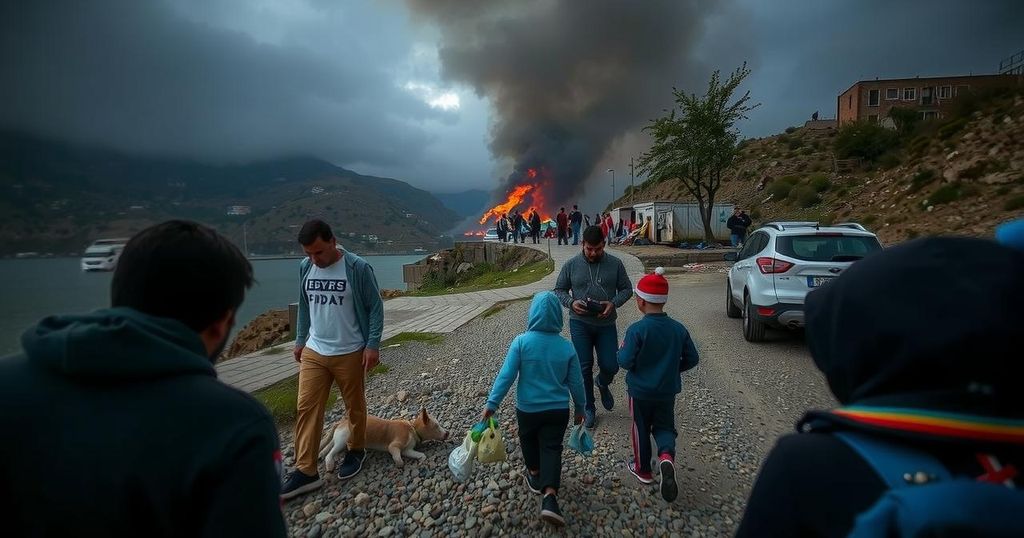The UN has expressed concern about Lebanese individuals fleeing back to Lebanon from Syria due to harsh conditions. Gonzalo Vargas Llosa stated that small numbers of families are risking their safety to return, amidst a significant influx of refugees due to the ongoing conflict involving Israel and Hezbollah. The humanitarian situation in Syria continues to deteriorate, prompting fears about future cross-border movement and the need for international aid.
The United Nations has raised alarms over the precarious conditions in Syria prompting some Lebanese families, who sought refuge during the ongoing conflict involving Israel and Hezbollah, to consider returning to Lebanon. Gonzalo Vargas Llosa, the UN refugee agency’s representative in Syria, indicated that although the numbers are small, they reflect a troubling trend whereby families find the conditions in Syria intolerable, thus risking their safety to return home.
Since late September, around 560,000 people, primarily Lebanese nationals, have fled into Syria, according to the UNHCR, while Lebanese authorities report even higher figures exceeding 610,000. Approximately 65 percent of those fleeing were previously Syrian refugees in Lebanon. Vargas Llosa noted that there was a significantly high number of both Lebanese and Syrian refugees crossing the border during this period, highlighting the ongoing humanitarian crisis in the region.
While the local communities in Syria demonstrated commendable generosity towards the newcomers, concerns are growing about the sustainability of such support given Syria’s deteriorating economic conditions. Vargas Llosa emphasized that families returning to Lebanon perceive the situation there as comparatively better, with potential access to support systems and income generation, despite ongoing bombings.
He pointed out that around 50 families are currently choosing to return to Lebanon daily, and warned that without increased international assistance, this trend could rise significantly in the coming months, representing a grave concern for the stability of both Lebanon and Syria. Additionally, there has been a marked decline in the number of arrivals into Syria, suggesting that fear of violence at the borders is affecting cross-border movement and placing further strain on the refugee situation.
The warning from the United Nations comes in the context of heightened military conflict between Israel and Hezbollah, which has forced significant numbers of people to seek asylum across borders. The situation in Syria itself remains dire, with more than a decade of civil conflict severely impacting living conditions. The return of Lebanese individuals from Syria is indicative of their desperate attempts to find safer, more stable living situations despite the inherent dangers involved. Approximately 560,000 individuals have fled into Syria, and the economic hardships faced by Syrian communities, alongside their infrastructure devastation, contribute to the complexities of the refugee crisis. This ongoing struggle highlights the need for substantial international support to assist both Lebanese and Syrian populations affected by these compounding crises.
In summary, the UN’s alarm over the return of Lebanese families from Syria underlines a growing humanitarian crisis exacerbated by war and economic collapse. As conditions in Syria worsen, the precarious situation demands immediate attention from the international community to prevent a further escalation of this crisis. Furthermore, the reluctance to use border crossings out of fear for safety only complicates the already challenging refugee landscape. Urgent and coordinated international assistance is essential to provide relief and support to those impacted by the ongoing turmoil.
Original Source: www.newarab.com






